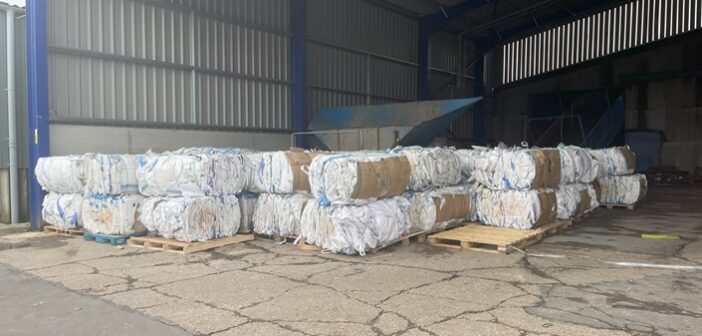A closed-loop plastic recycling initiative is hopefully the first of many to be launched by the Green Tractor initiative.
Green Tractor has forged a partnership between leading fertiliser bands, Agrii and packaging provider FPS Flexibles. Farmers purchasing fertiliser from Yara, CF, Origin and Glasson, or seed from Agrii, will be supplied with details on Green Tractor approved recycling providers. The aim is that all used packaging will make its way back to FPS Flexibles. “Hopefully, this is the start of a number of such initiatives,” says Green Tractor Project Coordinator, Joe Farmer.
The scope to extend the scheme is obvious. Seed bags are also made from Polypropylene (PP) and Agrii wants farmers to also return its seed bags so these too can be recycled into fertiliser packaging. However, the company is keen to see a similar closed-loop seed packaging scheme develop.
That the industry is pretty good at recycling can be seen by the fact that 42,000 tonnes of plastic has already been collected from UK farms through the Green Tractor scheme. But there is always room for improvement.
The scheme was devised by four waste management businesses – Agri.Cycle, Grassroots Recycling, Solway Recycling and Emerald Isle Recycling – but has since grown to include other farm plastic recyclers, providing an accredited recycling service to farmers nationally.
Growers can find an accredited provider from the Green Tractor website and compare prices as each is an independent business. “It really is totally farmer driven. A farmer can select the business he or she feels is most appropriate for them. The good thing is regardless of which contractor they choose they know the waste will be handled and reprocessed correctly.”
Green Tractor hopes that by 2030, 70% of farm plastic will be processed by the scheme. Mr Farmer understands the frustration many farmers face with extensive bureaucracy but says the more the industry can do to present a responsible front the better. “The likelihood is that tighter legislation will come so the quicker we move from a linear disposal process to a circular one the better.”
Pressure is likely to come from the manufacturers themselves. Brands are increasingly aware of their ESG responsibilities (environment, social and corporate governance) and keen to demonstrate their credentials in this area. “Our aim is to bring manufacturers, NGOs, the waste sector and farmers together to help agriculture reach sustainability targets and demonstrate recycling best practice to consumers at large,” he concludes.




